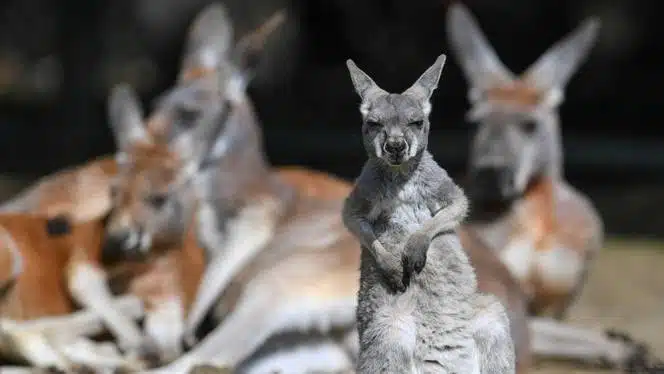Flinders University researchers have identified extinct kangaroo species, including one that was twice as big as a red kangaroo today.
Three new kangaroo species that lived in Australia between 5 million and 40,000 years ago have been found, according to research.
According to a Monday journal Megataxa article, the Australian researchers from Flinders University identified the three species of the extinct genus protemnodon by comparing museum specimens with fossils recovered near Lake Callabonna in South Australia.
It has been determined that protemnodon dawsonae, mamakurra, and viator are the new species. The largest of them is the Viator species, which is double the size of the modern red kangaroo at 170 kg.
Lead researcher Isaac Kerr described it as “probably a bit like a red kangaroo, but a bit more thick-boned and muscular.”
Finding the misplaced kangaroos
According to Kerr, the study took more than five years and entailed analyzing fossils from 14 collections housed at four institutions in England, the US, and New Guinea.
Large lakes and rivers in Central Australia may have been home to the protemnodon viator, according to Kerr’s detailed photos and 3D scans.
Kerr made a comparison between the protemnodon dawsonae species—about which the least is known—and the modern-day “swamp wallaby or redneck wallaby.”
The study suggests that the protemnodon mamakurra species may have resided in the mountains of Tasmania, the east coast of New South Wales, and the southern Australian coast.
The species in question was described as being “more prone to moving around on its hands and feet rather than hopping.”
However, the palaeontologists claim that they are still unable to identify the cause of the about 40,000-year-old extinction of these recently found Protemnodon species.
Unlike some huge mammals, kangaroos don’t appear to have been actively hunted or to have experienced a major climate-related disaster.
“Once humans arrived, they most certainly disappeared.However, Kerr pointed out that there is “absolutely no evidence to show that Aboriginal people hunted Protemnodon.”
This study, however, offers a larger dataset of Protemnodon species than was previously available. The improved database could provide more information about how to identify fossils.
SOURCE: TRTWORLD






